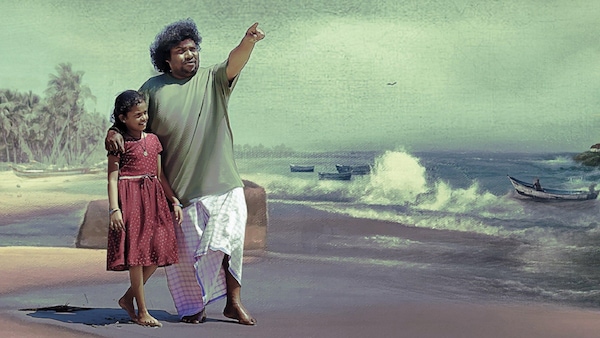Shan's Bommai Nayagi Is A Whimper Of An Honest Tale
There is a weariness associated with films like Bommai Nayagi that seem honest enough but lacking in conviction and going with the flow of what’s working in Tamil cinema today, writes Aditya Shrikrishna.

Last Updated: 02.52 PM, Feb 04, 2023
In Shan’s Bommai Nayagi, notes of silence play a starring role in the first half. A wife’s (Subathra as Kayalvizhi) smile at her husband (Yogi Babu as Velu) is more lascivious in conveying desire than any amount of physical contact, song or dialogue could. A moderately satisfied family of three — Velu, Kayal and their titular daughter (played by Srimathi) — live in Cuddalore and it is 2006, the wounds of a devastating tsunami still fresh. But life moves on and so does Velu as he wakes up early every day to open the tea stall where he works. The nature of his job allows him to encounter people of several shades — beggars, communist activists, policemen and politicians. He wavers between being naïve to a fault and minding his own business, subservient to most with misplaced respect for his half-brother Senthil (Aruldoss).
The silence crops up again when after an attempted sexual assault on Bommai he walks away from the hospital and breaks down with his back to the camera. He fools family and friends into thinking it was dog bite but when Kayal finds him and demands to know, Shan fades to black and leaves the whole ordeal unsaid, just like he does with the crime as well. Some of these touches work in the film along with Yogi Babu’s dramatic performance that hits just the right notes of quietness and outrage, but Bommai Nayagi overall suffers from a pacing problem. Events seem disjointed at first (except for one tragic character introduced early on) and scenes of protests and lives of activists like Jeeva (Hari Krishnan) don’t carry the same flourish to keep things interesting. They must have the force of a cannonball mid-flight, but they land as a whimper as the writing and direction don’t carry that wallop. They are codified in the most stereotypical ways to show them as idealistic protesters or reprehensible and violent policemen or the casteist upper caste/class people in the village and lawyers of all hues.
At least the first hour or so has Yogi Babu carrying the film and its minimalist approach to storytelling works. In the second half, there is a quick resolution of the case and there isn’t time to feel or live through the story and the hardships of Velu and his well-wishers. Bommai Nayagi’s thematic concerns are unboxed in this fashion, the loss of naivete and an eventual loss of confidence in the system and reaffirmation of existing power structures. It reveals itself to be a character study that hasn’t done its homework. It’s not exactly an epilogue but feels like one — a happy ending is quickly snatched away to make a larger point about suffering as theatre and electoral gambit. But one wonders if Shan had to wait that long to get to the stage because it does introduce some inconsistency in how the case begins and ends.
There is a weariness associated with films like Bommai Nayagi that seem honest enough but lacking in conviction and going with the flow of what’s working in Tamil cinema today. Yes, caste and associated violence and injustice is more routinely talked about both in mainstream media as well as pop culture like cinema than ever before. But one wonders if that is enough to greenlight a script—to go with the flavour of the season that’s also saleable. Bommai Nayagi is not a bad film, but the script needed more polishing and better staging. Especially when well made films like Irandam Ulagaporin Kadaisi Gundu, Writer, Witness and above all, the works of Pa Ranjith and Mari Selvaraj set the bar so very high.
